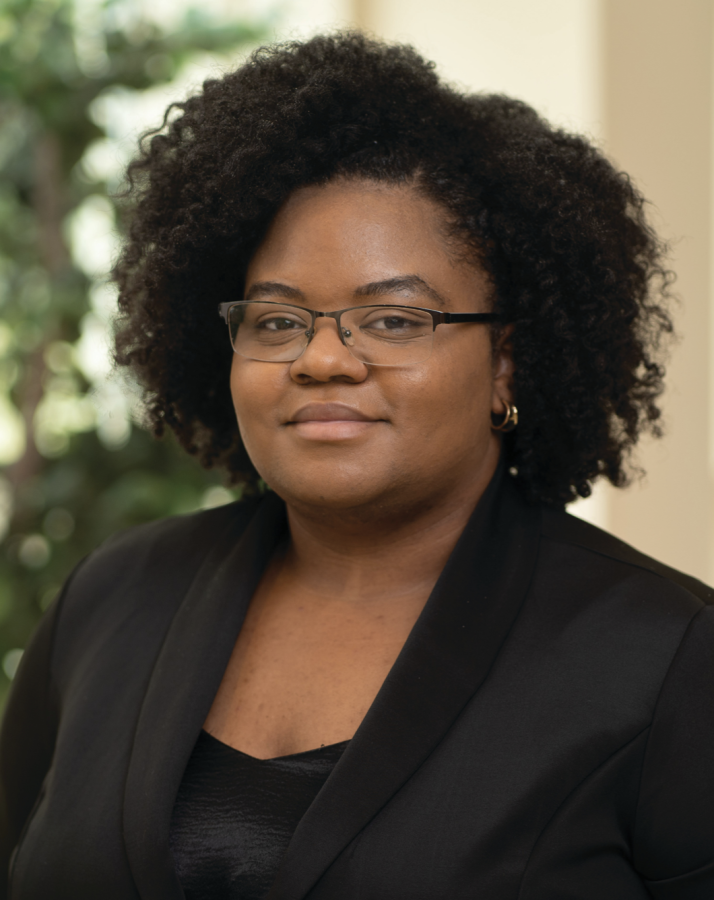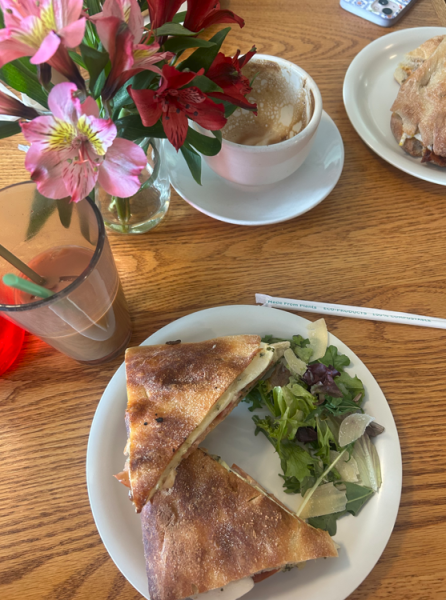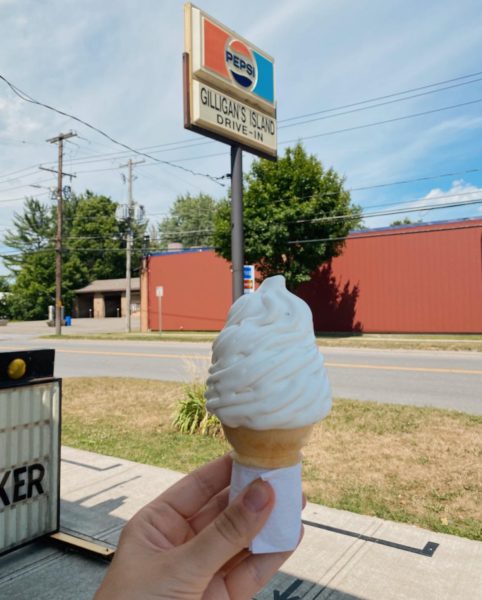Charm Little-Ray: Haven’s Holistic Healer
Content Warning: Mentions of sexual violence
Charm Little-Ray has served as the Associate Director of Survivor Support Services at Haven, Colgate’s center for survivors of sexual violence, since August of 2021. Her extensive background in clinical contexts and innate desire to aid others in times of need prove critical to Haven’s operations.
Little-Ray, an alumna of Brooklyn College, received her master’s degree in mental health counseling. She continued her work in New York City in social services. In the early experiences of her career, Little-Ray volunteered as a rape crisis counselor at Bellevue Hospital, where she was first introduced to the field. She was then employed by Brooklyn Community Services for nearly 10 years, where she assisted families who were survivors of child, domestic and sexual abuse, and provided mental health services. These services included case management, vocational skill development and therapy.
“In Brooklyn, I worked with adults who had mental health concerns and learning disabilities,” said Little-Ray. “I helped prepare them for jobs, and their lives afterward.”
In conjunction with her abundance of experience working with students, adults and people with learning disabilities, Little-Ray is a licensed mental health clinician. Little-Ray’s colleague, Dawn LaFrance, who is the assistant vice president of counseling and psychological services at Haven, is also a licensed mental health clinician. The Haven leadership staffs’ certification in providing counseling services to students is an essential element of their work. Little-Ray emphasizes her personal interest in these duties.
“I like to say that I’m more geared towards the clinical aspects of my career — which includes an entire range of experiences,” said Little-Ray. “Though we [Haven] are seen as primarily providing services for survivors of sexual violence, I want to emphasize that our services are for those who have been impacted by various forms of trauma — such as sexual harassment, childhood trauma, stalking and those exposed to abuse — and for those who want to learn more about sexual violence and prevention.”
Within Little-Ray’s day-to-day work, planning programs such as the Yes Means Yes initiative composes one of several influential projects that traverse through the calendar year. Founded in 2009 by a Colgate student, the Yes Means Yes program consists of six weeks of discussion concerning topics of consent and positive sexuality. Discussions aim to unpack the stigmatization of sex and combat sexual violence. Overseen by Michele Passonno, assistant director of Haven, the course is led by trained Yes Means Yes facilitators. Little-Ray explains that these meetings provide a novel education for many students without knowledge in such topics discussed.
“Students are opening up space for other students to learn more about positive consent and sexuality, which they may not have had experience with in high school,” said Little-Ray. “They’re learning how to express their wants and desires in intimate situations.”
Haven’s connections with on-campus and off-campus partners allows it to communicate its services to those seeking confidentiality and build stronger, intersectional programming. Little-Ray finds great value in Haven’s collaboration with off-campus partner Julianne Thomas from Help Restore Hope, a domestic abuse treatment center in Oneida, N.Y. Although Thomas’ services at Colgate are housed in Haven, the information she receives from students remains completely confidential per their request. In terms of partners on campus, Little-Ray enjoys collaborating with Lyosha Gorshkov of the Office of LGBTQ+ Initiatives, given that she is consistently preaching ideals of equity for this community.
“We’ve done a few different programs with Lyosha and the center for LGBTQIA+ initiatives,” said Little-Ray. “It’s important to bring attention to the LGBTQ+ community’s lived experiences, and how we as a community can support them.”
As much as Little-Ray contends for the vibrancy and zeal of her collaborative colleagues, her own is evident in her perspectives concerning the wellbeing of students she mentors. When she first applied to work with Haven, she was struck by the name: She understood that “Haven” would connote somewhere students could safely gather. For survivors of sexual violence, creating a safe space is key.
“The name ‘Haven’ means so much to me,” said Little-Ray. “I think everyone needs a refuge. Being able to have a safe, quiet space with someone to talk to is crucial for students’ wellbeing.”
Little-Ray offers Haven everything that it values: Safety, collaboration, sensitivity and zeal. A healer since her early career, she will continue to offer holistic health services to Haven’s offices for years to come.









